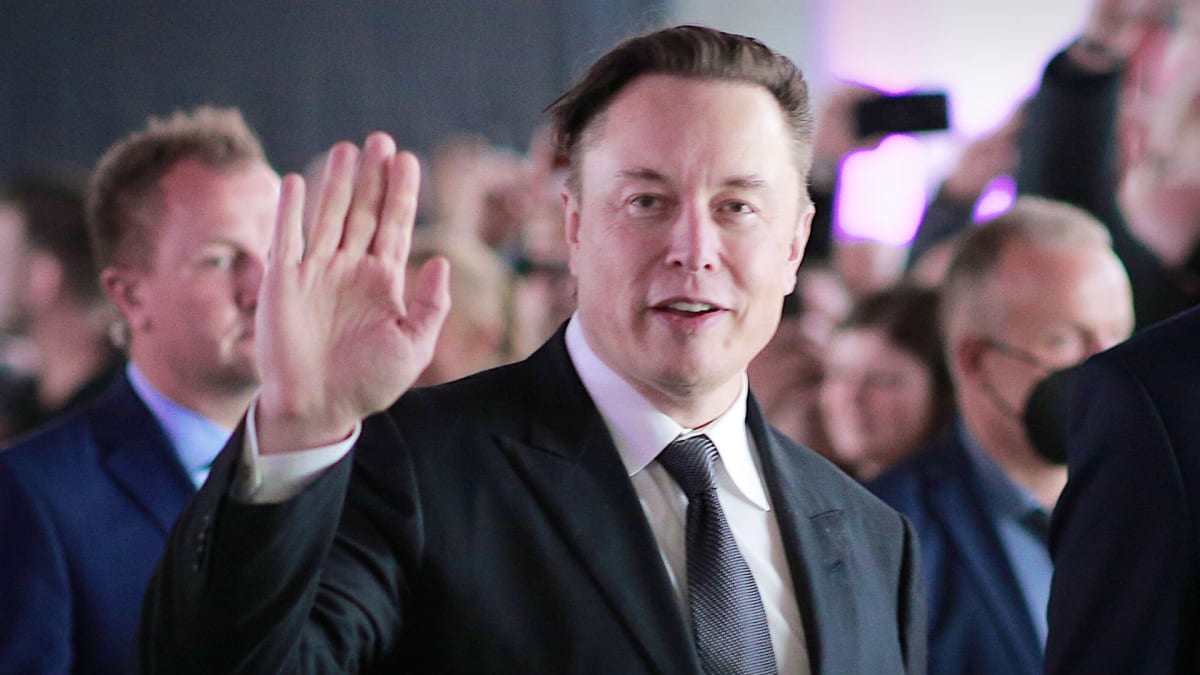
Elon Musk made it his mission to transform civilization.
The serial entrepreneur sees himself more as a world leader than just the CEO of electric-vehicle manufacturer Tesla (TSLA) or the founder of the space-technology company SpaceX.
He injects himself into geopolitical affairs and comments on any subject that he considers affects the planet. On Feb. 24, 2022, he seized the first opportunity to build his brand on the world stage: Russia's invasion of Ukraine.
Musk supported Ukraine by giving the country access to Starlink, the satellite-driven internet-access service developed by SpaceX. Starlink, which is independent and difficult to hack, became a critical tool for Ukraine's citizens and military after Russian bombing destroyed the country's communications infrastructure.
This aid to Ukraine has helped boost the international profile of Musk, who currently has more than 128.3 million followers on the Twitter social network, which he has owned for several months.
Musk also wants to be the spokesperson on the international scene for those who feel they are never heard. He has thus given himself the mission of attacking institutions of power that are unpopular in conservative circles as well as among progressives.
Musk Goes After Davos
For example, last month the billionaire attacked the World Economic Forum. Musk began by declining the organizers' invitation to attend. He then spent the next few days questioning the legitimacy of the forum.
In doing so, he relaunched the debate on the usefulness of this club, which brings together politicians, economic leaders, personalities from civil society and journalists in the ski resort of Davos, Switzerland. In the end, people talked as much or more about Musk's remarks and ideas than about the agenda items at the forum..
"WEF is increasingly becoming an unelected world government that the people never asked for and don’t want," the tech tycoon blasted on January 18.
Less than a month after the forum, Musk is now taking on another international organization that also symbolizes power.
Musk Blasts the UN
This is the United Nations. Musk claims the multilateral institution is a conduit for disinformation.
It all started with a post showing a short excerpt from a speech by UN Secretary General Antonio Guterres, saying in part: "We'll call for action from everywhere with influence on the spread of 'mis- and disinformation' on the Internet."
Guterres continued: "Governments, regulators, policymakers, technology companies, the media, civil society, stop the hate. Set up strong guardrails, be accountable for language that causes harm.
"And as part of my report or common agenda, we are convening all stakeholders around the code of conduct for information integrity on digital platforms. And we are also further strengthen our focus on our mis and disinformation [that] are impacting progress on global issues, including the climate crisis."
Musk, who has owned Twitter since Oct. 27, did not appreciate this call to stop the spread of false information.
"The UN is more likely to cause, rather than prevent, disinformation," the billionaire lambasted.
The topic of disinformation on social networks is very sensitive for the billionaire. Last month he'd responded scathingly to remarks by Richard Edelman, CEO of the eponymous communications agency that advises companies worldwide.
During a roundtable at the World Economic Forum, Edelman was asked his opinion about social networks and the spread of disinformation.
"So I think the first thing, because I mostly work with business, that business needs to do is deprive platforms that spread this information of oxygen," Edelman responded. "Stop advertising, pull your promotion money, make sure that they understand that they have a consequential impact on society.
"And the boycott of Twitter for several months has had a modest, modest impact but I think the Facebook one failed," he added. "But the necessity of getting it right in the platforms that are probably primary source information for a third to 40% of people is urgent."
Edelman was referring to the decision by many advertisers to pause promotion of their products and services on Twitter after Musk took over the platform.
The billionaire, who defines himself as a free-speech absolutist, had reactivated most of the accounts that Twitter 1.0 had banned for violations of internal safeguards against xenophobia, racism, antisemitism and the spread of disinformation.
Musk has also made free speech the principle when it comes to content moderation, which means that any tweet is acceptable on the platform as long as it doesn't violate the law.
"Edelman is a despicable human being," the entrepreneur, who owns almost 80% of Twitter, fired back. "His job is literally being a professional liar!"







